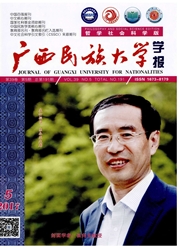

 中文摘要:
中文摘要:
作为混合方法论的哲学基础,实用主义指出用“二分法”的态度来判断定量研究与定性研究的优劣是对科学的误解;社会科学研究的不同范式不仅可以相容,更适用于尚未成熟的学科。然而,已有部分研究将混合方法视为定量研究与定性研究的“随意”结合,忽略了在实用主义范式下混合方法论有其自身的研究路径和模式。结合民族旅游研究,围绕“什么是混合、为什么混合、如何混合”这一主线,系统梳理和评述混合方法论中的关键问题,指出民族旅游研究中混合研究设计的类型,其重要意义在于唤起研究者的“问题意识”,或将成为推进本土化研究和学科建设的突破口。
 英文摘要:
英文摘要:
Pragmatism, the philosophy basis of mixed methodology, points out that it would be a misconception about science to simply judge quantitative research and qualitative research with the attitude of dichotomy. Actually, different research paradigms of social science research can be not only compatible with each other, but also more suitable for those yet--to--be mature disciplines. However, some studies regard mixed methodology as the random combination of quantitative research and qualitative research and neglect the fact that mixed methodology has its own research path and pattern in pragmatic paradigm. Focusing on "what, why and how to mix", this paper criticaUy reviews the key problems of mixed methodology in the context of ethnic tourism research. According to the paper, the significance of the types of mixed research design in ethnic tourism research lies in arousing the problem consciousness of the researchers, which may provide a possible solution for localization research and discipline construction in tourism science.
 同期刊论文项目
同期刊论文项目
 同项目期刊论文
同项目期刊论文
 期刊信息
期刊信息
